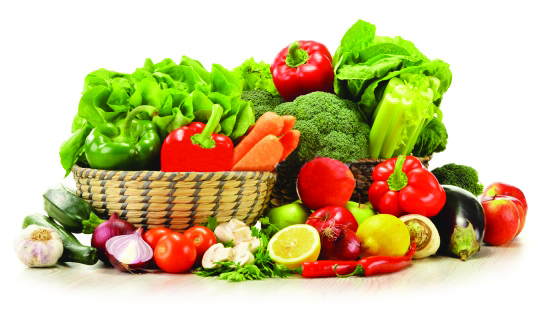
by Edna Cox Rice, RD, CSG, LD; www.CNConWeb.com
What are the foods I should include in my diet to boost my memory?
Forgetfulness may be due to a variety of reasons, lack of sleep, genetics, level of physical activity, lifestyle, and environmental factors. Your diet does play a major role in brain health.
The best foods to boost memory and brain health are foods you would eat to nourish and protect your heart. These foods encourage good blood flood to your brain. For better cognitive function, memory, and alertness include colorful vegetables and fruits in your daily diet. Adequate intake of deep green veggies, especially cruciferous ones such as broccoli, cabbage, kale and other leafy greens may help improve memory.
Richly colored berries, especially blueberries, cherries and blackberries are an excellent source of anthocyanins and other flavonoids that boost memory function. Fresh, frozen or dried berries and cherries offer health benefits.
Secondly, omega-3 fatty acids, docosahexaenoic acid (DHA) in particular, are essential for good brain health. DHA is the most abundant fatty acid in the brain.
So foods rich in this fatty acid will help the brain operate more efficiently. The best sources of omega-3 fatty acids are seafood, algae, and fatty fish – including salm on, bluefin tuna, sardines, and herring. To enhance health benefits and flavor, grill, bake or broil fish. If you don’t eat fish supplementing your diet with fish oil is an option to consider.
These foods are good for your entire body and help to sustain a healthy heart as well a boost memory. Over time they support lifelong health.
With summer approaching I am looking forward to all of the fresh produce. Recently I have heard about people contracting food borne illness from vegetables and fruits like spinach, sprouts and cantaloupe. I keep my fresh produce safe?
Food safety doesn’t stop with proper hand washing. Most health risks linked to produce can be eliminated with proper preparation and cleaning produce thoroughly. The CDC (Centers for Disease Control and Prevention) estimates that about one in six Americans gets sick from food poisoning each year.
Tips to keep your produce safe:
• When possible buy produce in season
• Buy local produce as often as possible
• Don’t purchase produce with mold, cuts or bruises
• Buy only the amount you will use within a week
• Immediately store any produce that needs refrigeration
• Once produce is peeled or cut, refrigerate within two hours
• That is left at room temperature for more than two hours
• Discard cooked vegetables after three to four days
• Wash all fruits and veggies with cool tap water immediately before eating to prevent dirt and bacteria from being transferred from the knife onto the fruit or vegetable; gently rubbing while holding under running water
• Wash produce before peeling
• Cut away bruised areas before preparing or eating
• Dry produce with clean cloth or paper towel to further reduce bacteria from spreading
• To prevent cross contamination, use one cutting board for fruits and veggies and one for meats Enjoy the abundant South Carolina summer produce. It’s good for your health!
Visit www.homefoodsafety.org for more information on keeping your food safe.



